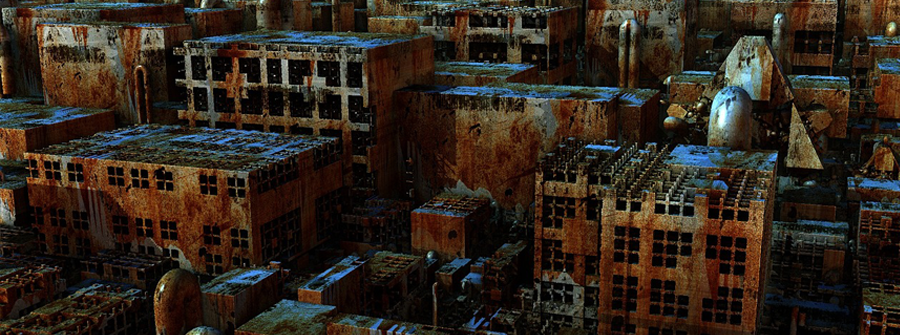I’ve always liked dystopias. Partly because I like sci-fi and horror, and dark future fiction often has features of both. Most of all, however, I am fascinated by the hope that lives in every dystopia.
The Cambridge Dictionary defines dystopia as a very bad and unfair society or a future society after something terrible has happened.
Heroes are born in dystopia
Dystopia is the opposite of a utopia, an ideal perfect society. However, it is not always so black and white. Sometimes in fiction utopia may be just a cover for a totalitarian society or a dystopia could be an impulse for better tomorrow. Dystopia as an environment motivates people to become heroes.
If you think of The Burning Squid stories, Syd (from the Chronicles of Salaboa) would be a typical dystopian hero. Syd’s world is under a threat and even he is not the most heroic type of a character; he acts on that threat and tries to save the world.
In dark futures, I am drawn by hope. When the story world is gloomy and its social structures are cruel to the people a lot of opportunities open up for the story. Hope creates rebellion and gives the people courage to act.
Future fiction creates a framework for future action
I participated in a seminar about imaginary cities. It was held by a research network called KULTVA at the University of Turku. Among other things, we were discussing future cities in literature and films. What lies behind the visions of the future and what the imaginary futures tell about us and our time.
There was also discussion about how fictive futures could be used, for example, in urban planning or when we try to solve possible future problems. Literature researcher Lieven Ameel‘s (PhD) also spoke of hope and activity. Fiction can create a framework for future action and through it we can research the impact of personal choices in a complex world.
According to Ameel, through fiction we can safely deal with different conceptions of the future. Because dystopia does not actually describe society, but how the humans see the society, the activity generated by dystopia can be positive.
What fascinates about the dystopias?
Few years ago the grim science fiction was more popular than ever. But what will happen next? In a world of climate crisis, the corona pandemic, the rise of the extreme right, and political contradictions, it would be logical to want to escape more into pink dreams and funny moments.
But perhaps what draws us to dystopias is that they are even worse than our own reality. Perhaps real life feels more tolerable after you immerse yourself in even darker worlds for a moment. Or maybe we all just love the idea of an ordinary person’s possibilities to make a difference. Maybe we need dystopias to find that person inside of us.
Picture: Carroll MacDonald, Pixabay
You can read this article in Finnish from The Friday Press blog.


